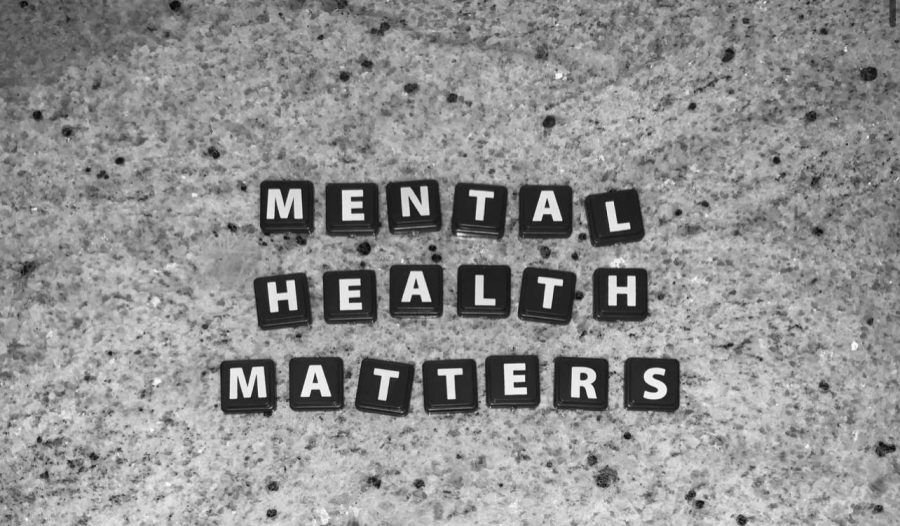MENTAL HEALTH MATTERS: HOW GEN Z IS NORMALIZING THERAPY
LAUREN ANDERSON
Generations upon generations of children and teenagers have been told to be mentally tough and to “suck it up.” But has this so-called “toughness” led to years of suppressed emotions and trauma? Gen Z has broken this trend of simply ignoring their emotions and has instead taken to therapy. A myriad of factors have increased this generation’s emotional instability; elements ranging from social media to immense pressure from previous generations’ pent-up emotions have set Gen Z over the edge.
The pandemic should be considered in assessing the increase in mental health awareness, as well. The long period of time away from in-person socialization took its toll: 37% of teenagers reported that their mental health was poor during the pandemic, and 20% said they considered suicide.
Depression and anxiety skyrocketed, as 31% of teen girls’ parents and 19% of teen boys’ noticed an increase or worsening of depression. Sleep issues and aggressive behavior dramatically increased as well.
As society re-establishes normalcy after the pandemic, speaking about mental health becomes further destigmatized. “Seeing my friends was a big part of my life… I didn’t realize how much other people played a part in my mental health,” Rock Island senior Ana Lampert stated. “If I went to see a therapist before the pandemic, I think I would have been judged. Now, it’s just something that’s normal and I think it’s really healthy.”
Illinois has made efforts to normalize mental health in schools by allowing students to take up to five mental health days per year. This was important to Lampert, as she felt it truly made mental health feel of equal importance to physical health.
“Until and unless we view brain and mental health as just as important as our physical health, we will never be able to fully recognize and experience the richness of life,” PV teacher Ms. Berger stated. “Think about how much energy we give to fear, to anger, to seeking wealth and “stuff.”’
Lampert also appreciates how therapy has strengthened her relationship with her friends and family. “I don’t feel like my emotions are bottled up anymore. I can talk to my mom or to my friends and not worry about pushing my emotions onto them,” she said. “It’s helpful to have someone there for you who’s not necessarily connected to your life and who can help you with their outside perspective.”
Though she feels therapy has been an immense help to her emotional well-being, Lampert’s parents were not so keen to let her begin. “My family is big on being tough and not letting our emotions get to us, so it was hard to convince my parents to let me meet with someone,” she stated.
Discussions of therapy originally caused a clash, but Lampert was quick to express how her entire family has noticed the difference therapy has made and has since embraced the process.
Berger agrees that addressing family dynamics is an integral part of therapy. “No one operates in isolation. The way a family communicates and operates within the home oftentimes impacts the well-being of the individual,” she said.
Despite skepticism from older generations, Gen Z has redefined what it means to be tough – it takes courage and bravery to face emotions instead of simply putting on a front. Recent circumstances have worsened teens’ overall mental health, but the new push of emotional awareness is helping teenagers to properly confront and understand their mental well-being.
HOW A LACK OF MENTAL HEALTH SERVICES IS DETRIMENTAL TO A STUDENT’S WELL-BEING
AVA HAHN
There is a mental health crisis among young people.
In the past, the discussion of emotions and asking for help overall were generally looked down upon. This mindset made young people fearful to talk about their emotions and speak out on what they needed. Without proper access to mental health resources, students still feel stuck and hopeless.
This mindset can become a danger to the population of high schools. There is a new wave of conversation concerning mental health. Compared to the past, access to resources is up and people are getting the help they need, but it is still not enough.
The demand for resources is at an all-time high, and although there have been massive improvements, the supply of resources is still too low. For someone to get an in-person appointment to see a psychologist or therapist, they can expect waitlists that span well over a couple months. This can feel like a dead end for students who finally have the courage to reach out for help.
A lack of mental health services also leads to a lack of diagnoses. This can be dangerous for adolescents that may require medication to have a better quality of life. When an effort is made to reach out for help, and it is denied, it can be discouraging for the incoming patient.
Senior Cece Fierce is a student who struggles with the challenges of mental health. “I have to wait until I turn 18 to visit a therapist,” she added. “Getting to see a therapist or psychologist seems like a never ending battle, and the wait time can be really discouraging.”
Mental health services may seem inaccessible to students, especially those who are minors. This isolation that students have is a leading cause for lack of diagnoses. One in three students struggle with mental health, but the number diagnosed is significantly lower.
Senior Breanna Hoskins is in the minority of students who have been able to seek help. “I started going to therapy when I was in sixth grade, and starting this behavior young taught me the importance of having someone there for you, almost like a life coach,” she said.
Hoskins continued, “After going to therapy for a while I was prescribed medicine, and I can’t even put into words how much it has helped me. A lot of people are scared of medication, especially when it comes to mental health, but in my experience it has all been a change for the better.”
Unfortunately, not everyone is as fortunate to be able to access these kinds of resources. Addressing mental health, especially among young people, is extremely important. Providing resources, and encouraging conversations can be a step in the right direction for getting students the help they need.












Kerri R • Apr 29, 2022 at 10:38 pm
In my experience with mental health issues due to both genetics and childhood trama with childhood abuse it’s very difficult for me to go to therapy or seak help because, I want to at least appear to be well put together due to always having to be ok for my mom since she always had too much on her plate. Plus I would hate to disappoint my mom.